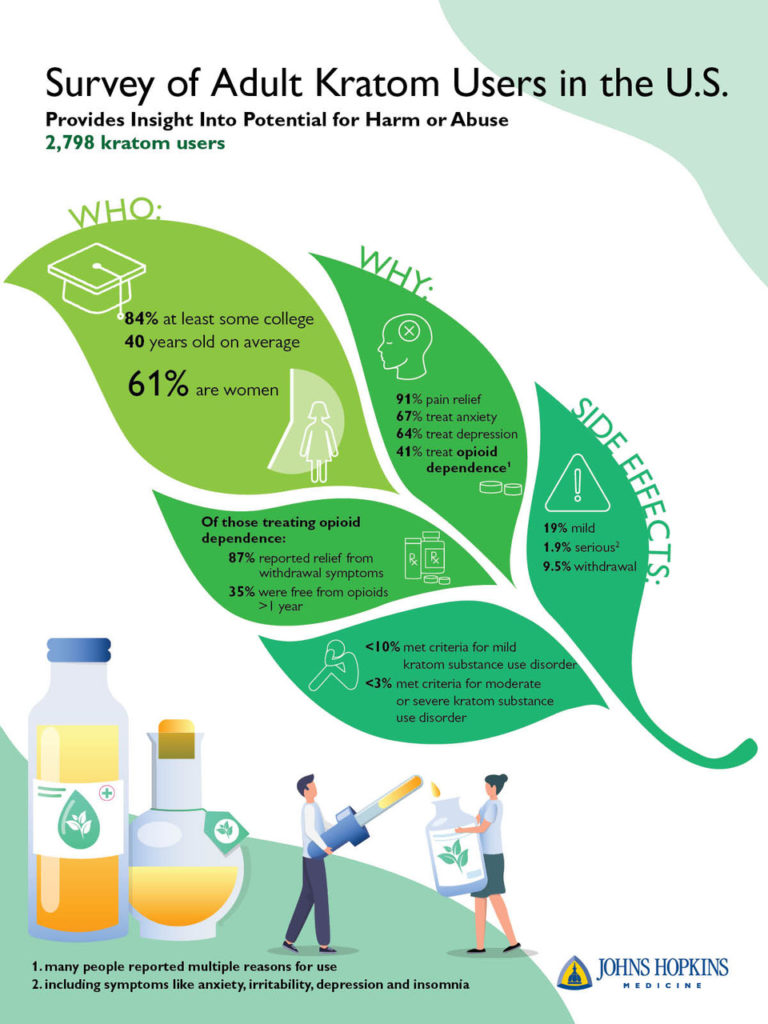Like kratom, I think that it is fair to say that us kratom consumers have been partially misunderstood and incorrectly labeled. In a world full of disinformation, it is easy to get lost in the madness. One day, you may see on the news a wild claim stating, “Man driven to psychosis by kratom.” Other days you may notice the science and medical community heralding kratom for its immense therapeutic benefits. The labels which people put on kratom and its consumers are not only far reaching, but wildly varying.
So what are we really for taking kratom… crazy or intelligent? Young partiers or old with pain? Druggies or nonusers? I guess the answer depends on who you ask.
If you ask me, however, I’d say that you cannot possibly label us. We as a whole do not fit a specific mold or profile. We are both young and old. We are a little bit of everything and everyone. This article here is all about setting the record straight, and as always, we are following the science to prove it.
Recently, John Hopkins University presented a news release titled, “Natural Herb Kratom May Have Therapeutic Effects and Relatively Low Potential For Abuse or Harm, According to a User Survey.” For starters, this is a huge win for kratom consumers everywhere. John Hopkins is one of the most prestigious medical institutions in the country, if not the whole world. To have them defend kratom and its benefits is a huge achievement towards changing our narrative. What this report also did was put a face to the name, “Adult Kratom User.” That is, they actually portrayed a fact-driven demographic portfolio of the kratom consumer.

Now, this is something that I have never seen done before in a kratom related article. What such a survey does is paint a picture of who we are and provide a glimpse into our stories of why we take kratom. There is no guessing or speculating. This is a narrative that we all collectively share.
After some digging, I eventually found that these statistics came from a 2017 survey conducted by Albert Garcia-Romeu, Ph.D from John Hopkins University who worked in cohorts with the American Kratom Association. Together they used the AKA’s resources as well as social media to obtain their 2,798 respondents. Their findings (demographically speaking) were pretty eye opening, albeit 3+ years old.
- 84% of respondents attended college
- 61% of respondents were women
- Respondents were 40 years old on average
- 91% of respondents had been dealing with pain, 67% had been treating anxiety
- 41% reported using kratom to treat opioid dependence
The only other demographic information that I could find came from a 2016 survey conducted by the American Kratom Association and friend of the Kratom Science Podcast, Dr. Oliver Grundmann. Together, they obtained a much larger sample size of 8,049 respondents. While there was no information regarding gender, they did find:
- The average user of kratom is between 31-50 years old
- Kratom users are middle income and above ($35,000 and above)
- 68% had been dealing with pain, 66% had been treating emotional/mental conditions
- 40% of respondents have discussed kratom with their health care provider
So what does this tell us? For one, early reports show that kratom consumers are more likely to have received some form of higher education than the rest of the US population. The 2018 US census reported that only 61% of Americans 25 and older have “some college” experience, for reference. Secondly, a kratom consumer is slightly more likely to be female than male. Third, people report taking kratom for valid reasons, whether it be a physical or mental issue. This helps dispute the notion that people are only taking kratom for recreational purposes (aka out looking for a legal high). Lastly, we know that the average kratom consumer is on par with your average US citizen, both in age and wage.
There you have it. The current picture of the kratom consumer is complete. By viewing people for what they are, it becomes much more difficult to make assumptions that paint a false narrative. As we move forward, it is important that we do our part to portray accurate representations of ourselves. Every day, policy makers and researchers utilize and make decisions off findings like these. If you wish to get involved, the American Kratom Association is currently looking for respondents to their ongoing surveys. You can email them at [email protected]. Here’s to hoping for an even better 2021 kratom consumer survey.
Disclaimer: There is no content on the Kratom Science Podcast nor on KratomScience.com that in any way constitutes medical claims or medical advice. You should consult a medical professional for medical advice and we believe this sincerely. Take care.
